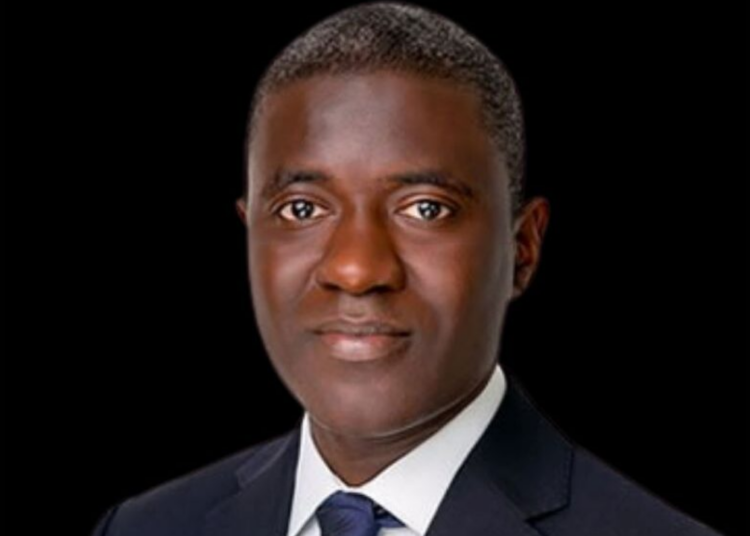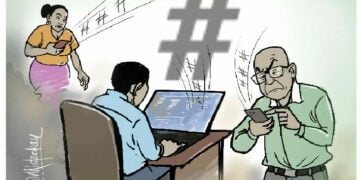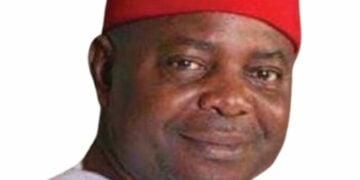In the early hours of Thursday, March 14, 2024, there was a nationwide outages on multiple networks in 12 African countries, including Nigeria.
The affected undersea cables were the West Africa Cable System (WACS), the Africa Coast to Europe (ACE), MainOne, and SAT3, which negatively impacted data and fixed telecom services in several countries of West Africa, notably Nigeria, Ghana, Senegal and Cote d’Ivoire and far beyond to eastern and southern Africa.
This led to internet disruption in major sectors of the economy. Nigeria has been counting its costs in the multiple billions of naira lost from the downtime caused by the damage to major submarine cables in both the Red Sea and the West African coast.
For instance, NetBlocks, the watchdog that monitors cybersecurity and the governance of the internet estimates that Nigeria may have lost over N273 billion in the four days between March 14 to March 17.
Restoration of network
It will take six to eight weeks, for network to fully restore, according to information released by MainOne.
The digital infrastructure company, who gave a revised schedule in an update on Monday, cited the scope of the damage for the new date. It mentioned that the necessary spares had already been carried onto the repair vessel.
The company added, „To expedite the repair of our submarine cable, we are actively working with our maintenance partners, vessel owners, and permitting authorities. We have high hopes that the planned repairs to our cable will be completed and that services will be fully restored.“
Plans to prevent future internet disruption
To prevent future disruption in Africa, the CEO, WIOCC, Chris Wood, said it will cost Africa $1 billion to lay new cable from South Africa to Europe, connecting multiple countries, including Nigeria.
Though the $1 billion is needed to build resilience and prevent future internet disruption in Africa, Wood however lamented that it is very expensive. „It is very expensive to build a new cable from South Africa to Europe, connecting multiple countries. It would be approximately a billion dollars, which is a lot. So it‘s not a simple thing to say or do. Someone has to pay that billion dollars. There has to be a commercial justification for spending that kind of money, and it also takes a long time to design and build these cables. The time spent to gather the $1 billion, and then design and build a cable is almost a 10 year process. It‘s not a one or two years process,“ he explained.
He disclosed that WIOCC is planning two Africa cable landing in multiple countries, with multiple landings in Nigeria, to provide an added layer of resilience, while urging all operators to utilize all of the cables, to prevent future disruption. „Resilience is only there if people use multiple systems to create that network resilience for themselves,“ he stated.
On total restoration of network, Wood said restoration will take weeks, starting from today. „We have activated over 100 circuits in just the space of a week or 10 days in terms of the timeline to get it back to normal. The impact on the Internet in Nigeria should be coming back to normal now.
„We need to mobilize ships. I think there are three ships that have been mobilized to repair the four cables. The ships are now starting to head towards the affected area and they will then locate the cable cuts and repair them. This process depends on the weather as well. They can‘t operate in stormy seas, it could take a little longer,“ he revealed.
Wood posited that it will cost millions of dollars to fix the damaged cables. „It‘s not a few $100,000. It‘s a number of millions of dollars, maybe $2,000,000 per cable, depending on how long it takes the ships to find the cables and repair them and those costs are borne by the cable owners themselves,“ he added.
In the same vein, Nigeria’s minister of Communications and Digital Economy, Dr. Bosun Tijani, has disclosed that protecting underwater cables and other digital infrastructure is the subject of discussions between the government and the International Telecommunication Union (ITU), as part of the federal government‘s ongoing efforts to improve the quality of telecommunications services across the country.
However, Tijani voiced his hope about the complete restoration of telecom services in the nation based on his discussions regarding the damaged underwater cables with ITU deputy secretary-general Tomas Lamanauskas in Geneva. Tijani made this disclosure via his verified social media account.
The post reads: “Following the recent cuts to submarine cables off the coast of West Africa, I spoke about my desire to initiate dialogue on building resilience in our digital infrastructure. So, I was pleased to meet with the deputy secretary general of the ITU, in Geneva, Tomas Lamanauskas, to kickstart action on organising regional and global efforts for the protection of submarine cables and other digital infrastructure.
“The deputy secretary-general and I discussed the review of global laws with relevant government and private sector stakeholders to ensure the enhancement of global digital resilience plans. We also spoke about building investment models for expanding Broadband penetration on a global scale, with Nigeria’s Broadband Alliance and Fibre fund as potential case studies for other global markets.
“As an immediate action point, we will be engaging African countries and partners at a stakeholder round-table in Abuja, to chart a path towards building resilience in our digital infrastructure, which remains a critical backbone for national development.“
It would be recalled the Nigerian Communication Commission (NCC) had notified consumers that Mobile Network Operators (MNOs) were gradually working to fully restore telecommunications voice and data services.
To prevent further internet in the future, the executive vice chairman of the Nigerian Communications Commission (NCC), Dr. Aminu Maida has called for a coordinated and multilateral approach by the West African region to protect shared telecommunications infrastructure, and diversify connectivity to ensure uninterruptible connections.
According to Maida, “Securing telecom infrastructure is paramount for fostering Foreign Direct Investment (FDI) and enhancing investor confidence in the West African sub-region. The reliability and resilience of telecommunications networks are crucial factors that investors consider when evaluating regional opportunities.
“By ensuring the security of these vital assets, we can attract more investment, spur economic growth, and enhance our competitiveness on the global stage. A secure telecoms infrastructure not only facilitates efficient communication and connectivity but also signals a commitment to safeguarding critical assets essential for business operations. This assurance can significantly boost investor confidence and create a conducive environment for sustainable economic development,“ he said.
According to him, „the impact of events like cable cuts highlights the need for a coordinated, multilateral approach to protecting shared infrastructure across our member nations.”
Maida therefore, proposed the urgent need to set up a framework for joint monitoring, risk mitigation, and emergency response procedures for the submarine cables that pass through the sub-region.
“Further to this, we recommend that the WATRA Working Group on Infrastructure expand its mandate to spearhead the development of a comprehensive strategy to safeguard the subregion’s telecommunications networks and associated infrastructure thereby proactively bolstering resilience through improved disaster response protocols to better insulate ourselves from future disruptions.”
He advised that the goals of the Working Group would be to strengthen sub-regional infrastructure resilience, promote the diversification of the sub-region’s connectivity, conduct regular capacity assessments, as well as facilitate the designation of telecommunications infrastructure as critical national infrastructure in member countries.





